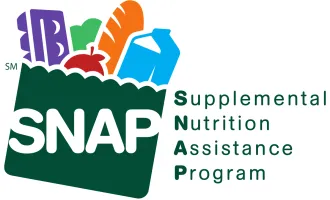Chancellor Gives 2012 State of the University Address
“After three years as chancellor, I haven’t left behind my innate optimism, ” Chancellor Susan Desmond-Hellmann told a packed Cole Hall, reflecting on her first years at the helm of UCSF during her State of the University address on Tuesday, September 25.
Her optimism buoyed this year’s annual presentation, which took place amidst trying times for the University of California system and the state of California as a whole. Despite the many challenges facing UCSF, Chancellor Desmond-Hellmann highlighted some of the university’s many accomplishments of the past year, including the awarding of the Albert Lasker Basic Medical
Research prize to Professor Ron Vale, the implementation of the APEX electronic medical record system at the UCSF medical center, and the launching of the Multicultural Center in Millberry Union.
Her acknowledgement of UCSF’s recent achievements came with a promise to step up to bat for the University to ensure more good years to come. “At the Regents’ meeting in January of 2012, I told the Regents that UCSF demanded that we keep our excellence,” she said. “That we were firmly committed, no matter what the circumstances were, that we would be great, and we would remain leaders.”
Key to the Chancellor’s vision for greatness is her campus-wide strategic plan, which she laid out one year ago in order to realize the university’s mission of “Advancing Health Worldwide.” At her State of the University address, Chancellor Desmond-Hellmann updated each of the plan’s five components, inviting key administrators to come to the podium to share their achievements and goals.
Highlights of these presentations included an update from Mark Laret, CEO of the UCSF Medical Center, about the rollout of the APEX electronic health record system, a report by Jeff Bluestone, Executive Vice Chancellor and Provost, about the school’s investment in online courses (which have already attracted 48,000 registered students), and news from Joe Castro, Vice Chancellor of Student Academic Affairs, that UCSF has raised just shy of $28 million towards the Chancellor’s $100 million target for funding scholarships and fellowships.
Joining the Chancellor and the UCSF community were 14 participants from EXCEL, a program that the university runs in partnership with the City and County of San Francisco and Jewish Vocational services. EXCEL aims to train individuals for administrative and clerical positions and then place them in four-month paid internships in various UCSF departments.
In addition to featuring the EXCEL program’s work in the local community, Chancellor Desmond-Hellmann also took multiple opportunities to draw attention to UCSF’s commitment to its own community. At UCSF, she was particularly excited about a pilot succession-planning program aimed at identifying and training employees who have the potential to fill more senior positions.
According to the Chancellor, “One of the greatest things I ever hear from people on our campus is, ‘I want to be a leader here.’ ”
Projecting a slide tiled with the smiling headshots of dozens of UCSF personnel, the Chancellor explained that it is the talent of the 23,000 people who make up the UCSF community that underlies her enduring ability to remain an optimist. “I'm optimistic because people at UCSF are the ones who make us great,” she said.


